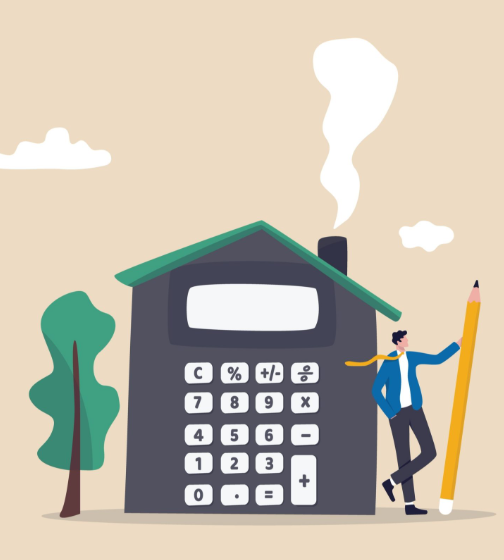When selling a property, many homeowners wonder if they will need to pay Capital Gains Tax (CGT). In the UK, the answer depends on various factors such as whether the property was your primary residence or a second home, and whether it was used for investment purposes. In this guide, we’ll walk you through when you need to pay CGT, how to avoid it, and the key rules surrounding property sales.
Do You Have to Pay Capital Gains When You Sell Your House?
Generally, if you sell your primary residence, you won’t have to pay CGT thanks to an exemption called Private Residence Relief (PRR). This relief is designed to protect homeowners who are selling the property they live in. However, if you own multiple properties or if the property is used for investment purposes, you may be liable for CGT.
When Do You Have to Pay CGT on a Second Home?
If the property being sold isn’t your primary residence, such as a second home or an investment property, you will likely need to pay CGT on any profit made from the sale. This also applies to buy-to-let properties, where the profits can exceed the tax-free allowance for the 2024/25 tax year.
For more information on how to reduce CGT on buy-to-let properties, check out strategies that can help minimise your tax bill.
What Triggers CGT on Your Main Residence?
While the sale of your main home is typically exempt from CGT, there are certain situations where CGT may still apply:
- The property includes more than 5,000 square meters of land or additional buildings.
- Part of the property has been rented out or used exclusively for business purposes.
- The property was purchased with the intention to sell at a profit (e.g., for property development).
- The property was sold after the owner moved out, and the sale occurred more than 9 months later.
- You have more than one main residence.
It’s important to be aware of these factors when considering whether or not CGT will apply to the sale of your home.
When CGT is Not Charged
You will not have to pay CGT on the sale of your property if it qualifies for Private Residence Relief. Additionally, if you gift the property to a spouse, civil partner, or charity, you will not be required to pay CGT. There are also other strategies that may help you avoid CGT—such as gifting the property or using specific exemptions.
How Much Is CGT in 2024/25?
For the 2024/25 tax year, the CGT tax-free allowance has been reduced to £3,000. This means that any profit above this amount is considered taxable income. The rates for CGT are based on your income tax bracket:
- Basic rate tax: 18%
- Higher rate tax: 24%
- Additional rate tax: 28%
You can reduce your CGT bill by claiming allowable expenses such as estate agent fees, legal costs, and other associated selling costs.
Do You Pay CGT When You Sell Your House and Buy Another?
If you sell your home and buy another property within 9 months, CGT is still applicable, and you may forfeit your Private Residence Relief. In this scenario, you will also be liable for stamp duty on the new property. However, if you wait more than 9 months to buy the new property, CGT is typically not due on the sale of your previous home.
Do You Need to Inform HMRC When You Sell Your House?
If you’re selling your primary residence and it qualifies for Private Residence Relief, you usually don’t need to report the sale to HMRC. However, if the sale doesn’t meet the criteria for exemption or if CGT is due, you must inform HMRC and file a tax return. It’s important to ensure that you meet any deadlines for reporting, as late submissions could lead to penalties and interest.
Conclusion
Understanding when you need to pay CGT and how to avoid it is essential when selling your property in the UK. If your home qualifies for Private Residence Relief, you may not owe any CGT on the sale. However, for second homes or investment properties, CGT may apply, and the rates depend on your income tax band. Always keep track of your property’s use and any changes to its status to avoid unexpected tax liabilities.
If you’re unsure about your specific situation, seeking advice from a tax professional can help ensure you’re compliant with the tax laws and minimise your tax obligations.



